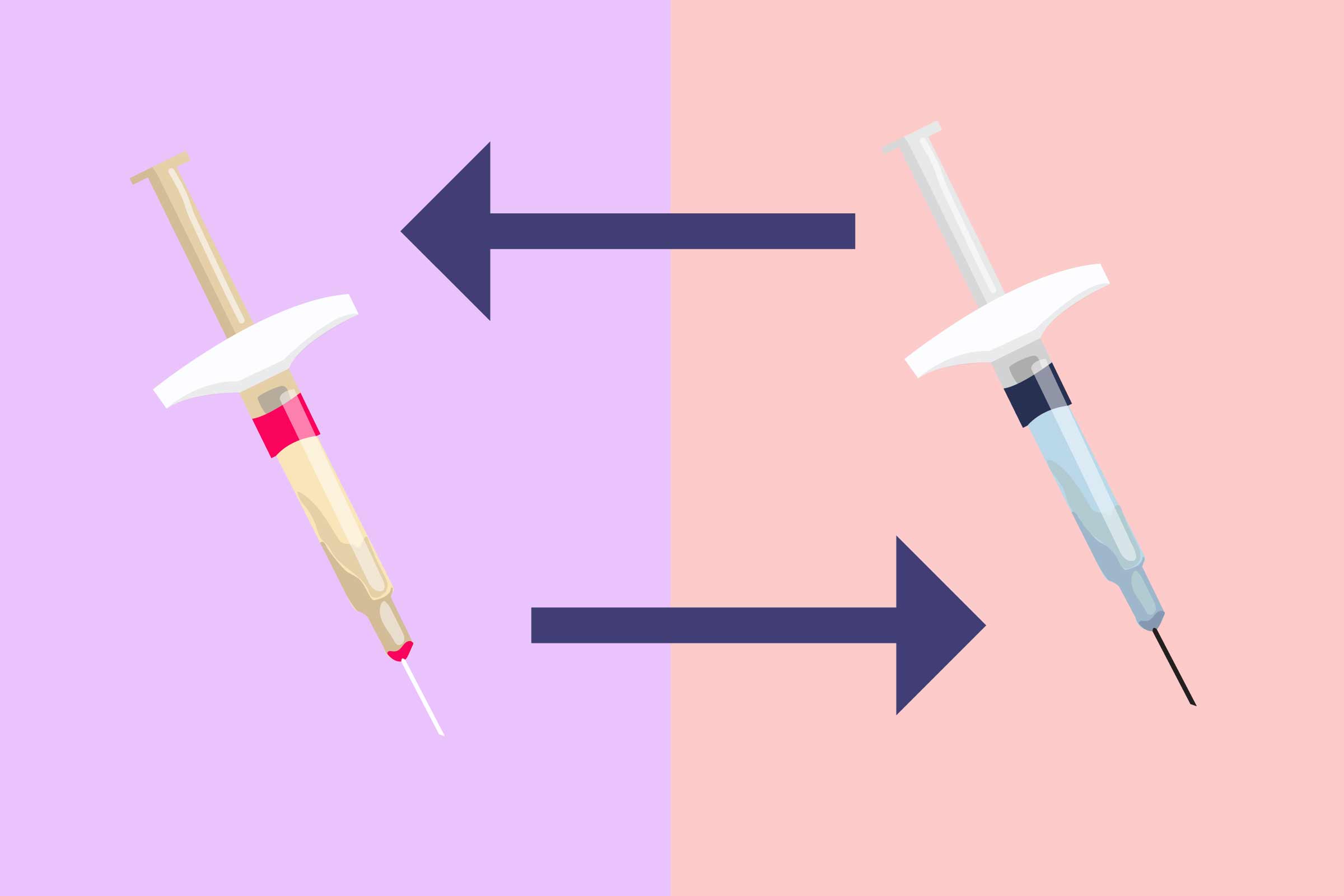

“Lene, I’m retiring.”
With these words, my rheumatologist added a new challenge and many questions to my life. Despite my initial shock, it wasn’t exactly a surprise. I knew that she was nearing retirement age, but I’d been practising a bit of magical thinking, hoping it would never happen.
Unfortunately, reality got in the way — for me and many other people who live with rheumatoid arthritis (RA) and other types of arthritis. All over Canada and in the U.S., a generation of rheumatologists are retiring, leaving busy and vibrant practices to enjoy some well-deserved time without work.
In this column, I’ll take a look at the relationships we have with our specialists and share tips for a painless transition of care when your rheumatologist retires.
Impact of Retirement on RA Care
When you live with a chronic condition like RA, stability in your health care team can make a tremendous difference for your care and treatment and this ripples into your quality of life.
Having the care of your health tick along effortlessly, with established lines of communication between each member of your team and solid relationships, makes your life better. When you trust each health care professional on your team and they trust you, you no longer have to prove that you’re in pain or feel like a flare is brewing, for instance.
Living with RA is not a walk in the park, even if you’re in remission, but having a rheumatologist (and other doctors) who understands you can make your journey much less complicated.
I’ve been with my rheumatologist for 24 years, and over this quarter-century we have built a tight team. We worked together to get my RA under control and she saw me through big flares, medication changes, and complications from the flu.
Over time, our appointments became more personal. She knew my life and I knew hers, and often, our conversations felt less like a doctor and patient and more like friends. Two and a half decades is longer than many romantic relationships and she was one of the most important people in my life. We both cried at my last appointment, and I hope that I’ll see her again, this time just as two people who like each other.
When you lose a core member of your medical team, especially someone you liked, it’s normal to feel sad. Allowing someone to care for your body is a very personal thing and can lead to deep feelings of trust and connection.
On the other hand, if you are not satisfied with your rheumatologist, them retiring might be cause for celebration. Either way, transferring you care to a new specialist can be an opportunity for a fresh pair of eyes to assess your treatment and possibly make tweaks that will get you even further.
But before you get there, you need to wrap up your business with your retiring rheumatologist. There are several important tasks you and your doctor need to complete before you say goodbye to each other.
Before Your Doctor Retires
Before your rheumatologist retires, they must complete certain processes, including informing their governing body (for instance, the College of Physicians and Surgeons of Ontario) of closing their practice. Most of these tasks happen behind the scenes without involving their patients. However, your doctor must give you notice of their retirement and in some locations, there are guidelines to the minimum amount of notice.
For instance, a doctor in British Colombia must give their patients a minimum of three months notice in writing of their retirement, but many doctors will give verbal notice long before that. Once you get that notice, make a list of what you need to do, either by yourself or in collaboration with your rheumatologist. To reduce your stress levels, I highly recommend not waiting until the last minute.
Get a referral to another rheumatologist
Ideally, your doctor will refer you to another rheumatologist to ensure continuity of care. If there is enough time between them giving notice and their retirement, you may be able to talk to your rheumatologist about the kind of doctor you hope to find (for instance, age, gender, location).
If you and your rheumatologist know each other well, they will consider the kind of person you are and how you approach your care when they refer you to someone else. Of course, given the current shortage of rheumatologists across Canada, picking and choosing may not be possible. If so, it may be more important to find you a rheumatologist rather than think about individual preferences.
Some doctors may also sell their practice to another physician and, in those cases, you’ll get the option to sign on with the new physician. If your rheumatologist doesn’t mention referring to another specialist, make sure you bring it up as soon as possible.
Plan for prescription refills
If your doctor doesn’t give you a referral to another rheumatologist or your first appointment with the new doctor is six months or more into the future, you’ll need a plan for prescription refills. Your family physician may take over this responsibility on a temporary basis with guidance from your retiring rheumatologist.
Ask your specialist to write a letter to your general practitioner (GP) with the details on your RA medication prescriptions and what to do should you experience a flare.
For instance, the policies followed by my family doctor specifies they can give me a low-dose steroid shot (systemic, not a joint injection), but my rheumatologist is comfortable with a higher dose. Specifying this in the letter to your GP can be important for your health, but also give your GP the support they need to justify a higher dose.
Lastly, if your rheumatologist did not give your referral to someone else, they may also ask that your GP do so.
Get a copy of your medical records
Under Canada’s Personal Health Information Protection Act (PHIPA), your doctor is required to keep your medical information secure and, in the case of retirement, transfer them to your new doctor or a secure medical storage.
You have a right to receive a copy of your medical records and I would recommend that you do so before your doctor retires. You may already be accessing part of your records, such as test results, on an app such as MyChart, but just as you keep a copy of other important information like tax documents and your birth certificate, you may also want to keep a copy of your entire health record. After all, it’s all about you.
When your rheumatologist retires, it can throw you into an emotional whirlwind. But if you and your doctor work together, the practical and administrative part of the process can go smoothly.
Remember: For you, the main goal of this process is to make sure your RA care continues without interruption so you can continue living your life.
Stay in Touch with CreakyJoints Canada
Part of the nonprofit Global Healthy Living Foundation, CreakyJoints is a digital community for millions of arthritis patients and caregivers worldwide who seek education, support, advocacy, and patient-centered research. All of our programming and services are always provided free of charge. As we grow CreakyJoints Canada we want to hear from you. Please join our email list to stay connected, learn about new content and initiatives, and send us suggestions and ideas.





